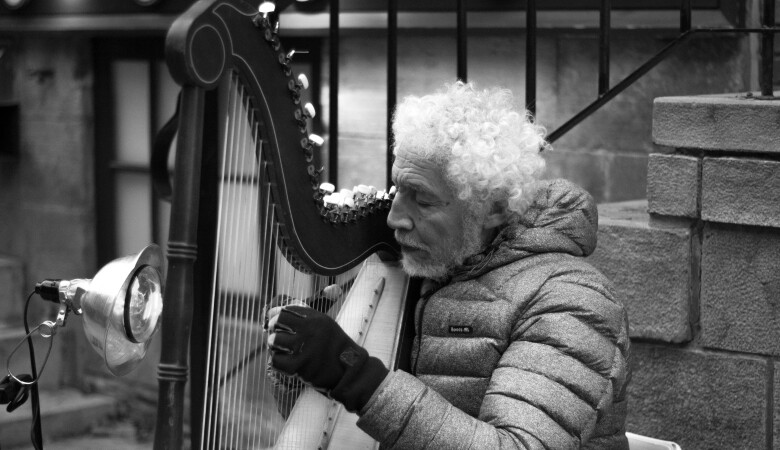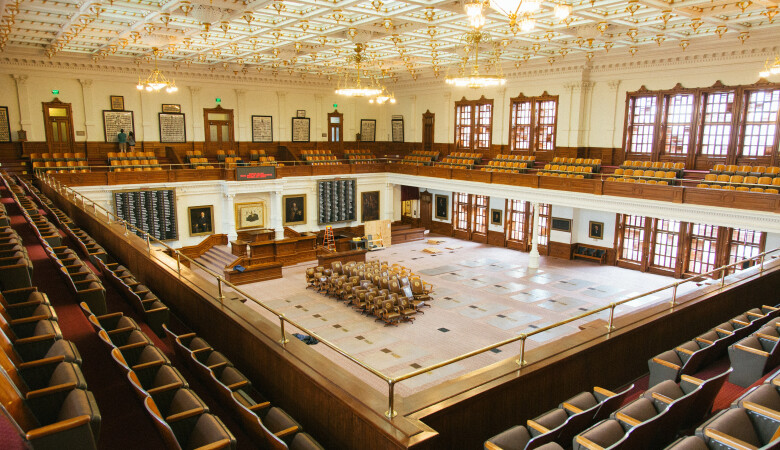The "Friend of Sinners" Saves a Tax Collector (Matthew Sermon 30 of 151)
August 11, 2002 | Andy Davis
Matthew 9:9-13
Grace, Repentance, Forgiveness
Pastor Andy Davis preaches an expository sermon on Matthew 9:9-13. The main subject of the sermon is that Christ befriended sinners who came to him rather than self-righteous individuals for the sake of their souls.
- SERMON TRANSCRIPT -
We're looking together today at Matthew Chapter 9:9-13. "Jesus is called the friend of sinners," not in this text, but in Matthew 11, but here we see it very admirably. We've seen that the whole story of the Gospel of Matthew is that of an advancing Kingdom, the Kingdom of Heaven. And every Kingdom needs a king, and Jesus is the King of the Kingdom of Heaven. But as we looked at it, we are trying to understand how His Kingdom is built. It's not like the kingdoms of the world; it doesn't advance by military conquest or by power. How does it advance? How does someone enter the Kingdom of Heaven? We're going to see the way that Jesus Christ builds his kingdom. Recently in Presidential elections, we've seen a major change in the way that candidates package themselves for the American people. As the political process has been mingled with advertising and marketing agencies and all that, there've been more and more of a concern constantly for what the people think about every little thing. What do they think about the color of a tie that the candidate is wearing or the tone of voice or inflection when he said this or that? There are focus groups, people that come together, paid for their time, and they sit around a table and watch a speech and they'll react moment by moment, up or down. Do they like it, do they not like it? Constantly concerned are the politicians for the ebbs and flows of the populous. They're concerned about what people think, what they like and what they don't like.
Tax Collectors as Outcasts
We're going to see in our text today that Jesus Christ is not that way. He didn't care at all what people thought about how he built his Kingdom. He's going to choose a tax collector to be an Apostle. Are you stunned by the fact that he would take a tax collector and make him one of his own? If not, it’s because you weren't a first-century Jew. If you lived in Jesus' time in Palestine, you would have had at least six good reasons to hate a tax collector. Number one, you'd have personal reasons to hate a tax collector because that man sitting in that booth is taking food off your table, he's taking things away from you, and so, you had personal reasons to hate the tax collector. You also had national reasons. Behind the tax collectors was the tyranny of the Roman Empire. The Romans were Gentiles, they were outsiders who had conquered Israel and were ruling over them. The Romans were seen as national enemies. Any patriotic Jew would hate a tax collector. That's why it's all the more bizarre that Matthew and Simon, the zealot, would be together, brothers in Christ, we'll get to that by and by. But if you were patriotic, you had good reason, you believed at least in the first century, to hate a tax collector.
What about theological reasons? Devout Jews understood that they were on the Promised Land. Palestine had been promised on oath to Abraham as Abraham's land. Through the sins of the people, the breaking of the Covenant, they had lost dominion or sovereignty over the Promised Land, but they desperately wanted it back. They felt that the Messiah certainly would come and give them sovereignty over their own land back. But here was this class of people that was selling out to the Romans. They were doing their work, they were collecting money for them. The had theological reasons to despise them. How about ethical reasons? The tax collectors were characterized by greed, by avarice. They frequently collected far more than was required. And what did they do with the extra tax money? They pocketed it, and they lived high, mighty, and large. Therefore, for ethical reasons they were also hated. And behind them was the might of the Roman Empire. So that if you got upset, if you objected, if you cross them in any way, heaven forbid that you should attack or kill one of them, the full might of the Roman Empire would come down on you if you touch one of those tax collectors.
There were also social reasons. For the above reasons, tax collectors were seen as outcasts. Nobody wanted them around, they were pariahs. We're social beings by nature, and so we want to hang around with somebody. Who are the tax collectors going to hang around with? The other outcasts, the other rejects, the sinners, the way the Pharisees called them. And finally, they were morally reject-able. Many tax collectors use their excessive wealth and earnings to live immoral lifestyles. They would have banquets were immoral acts occurred, and fine upstanding Jews would stand on the outside and say, "This is what you get when you're a tax collector." I'm going to say again, what I said earlier, Jesus Christ came and chose a tax collector to be one of his Apostles. Are you stunned? Well, you should be.
Matthew in the Gospel shows his humility, shows his willingness, to open up his past and say, "This is what I was. This is the life that I lived before I knew Jesus Christ." He follows in the long line of writers of Scripture who are willing to bear their own sins to all posterity, to show that the true hero of every story is God Himself. The true hero of the Bible is God, the mercy of God. We see even more than Matthew's humility, we see Christ's greater mercy. More than anything, this is the story of a stunning and sovereign gracious God, Jesus Christ, who saves a wretched sinner who really has nothing to offer. Now, as we look at the text, you're going to see eight things that I'd like you to look at. We're going to see the choice, the collectors, the call, the crisis, the commitment, the celebrations, the criticism and the correction.
"The true hero of the Bible is God, the mercy of God."
Jesus Chooses a Sinner
Verse 9, "As Jesus went on from there, He saw a man named Matthew sitting at the tax collector's booth, "Follow me," He told him, and Matthew got up and followed Him." Here we see the choice. What do I mean by the choice? I mean, Jesus Christ's sovereign choice. Christ's choice of US precedes our choice of Him. He said to his Apostles, of whom Matthew was one in John 15:16, "You did not choose me, but I chose you and appointed you that you should go and bear fruit, fruit that will last." Matthew was sitting there listening, it was truly true of him. In Matthew 11:27, Jesus said, "All things have been committed to me by my Father. No one knows the son except the Father, and no one knows the Father except the son and those to whom the son chooses to reveal Him." The son is choosing to reveal the Father to Matthew. Christ's choice comes first. The initiative in the story is with who? It's with Jesus Christ. He comes to Matthew, he walks by and he speaks to Matthew, "Follow me," — the initiative is with Christ. Later on, he would choose Matthew to be one of the inner circle, one of the 12 apostles. But all of this is of grace, not of merit. The commentator John Calvin said this, "That Matthew from his tax office should be received into Christ fellowship, yea, called even to the office of an Apostle, is an illustrious example for us of the grace of God. It was Christ's will, not only to choose simple blunt men for that rank, to bring down the world's wisdom, but also this tax officer who had followed a career of small credit, which had involved him in a great many corrupt deeds. To make him an instance of his free goodness, and then this person to teach that the calling of us all depends not on the merits of our own righteousness but on his sheer generosity.”
We also see in this choice of Christ his independence. Christ doesn't care what the neighbors think. He's not concerned what the Jews will say. He's not worried about the Pharisees standing on the outside being critical. He knows what he wants in His kingdom, and He goes and gets it. He looks with a vision that we don't have. He sees with a sight that we don't have. His thoughts are not our thoughts. It says in Isaiah 55: 8-9, speaking of God, "For my thoughts are not your thoughts, neither are your ways my ways, declares the Lord. As the heavens are higher than the Earth, so are my ways higher than your ways and my thoughts than your thoughts." If you had been putting together a kingdom in those days, would you have chosen a tax collector? I think not, but you and Jesus think differently. God looks at the heart and as he reaches down to the heart, He's looking for things we're not looking for. He is looking for brokenness. He's looking for a way that his grace may be magnified. In 1 Corinthians 1:26 and following, Paul talks about the Corinthian Church, and says, "Brothers, look at what you were when you were called. Not many of you are wise by human standards, not many were influential, not many were of noble birth, but God chose the foolish things of the world to shame the wise. God shows the weak things of the world to shame the strong. He chose the lowly things of the world and the despised things, and the things that are not, to nullify the things that are. So that no one may boast before Him. It is because of Him that you are in Christ Jesus." We see the independence of Christ, we see his willingness to put his Kingdom together the way He wants to. His ways are different than ours. He wants to choose outcasts. He delights in what we reject and He rejects what we delight in. This is the way He is. And more than anything, how wonderful is it that Jesus Christ is a friend of sinners. Matthew 11:19, it says, "The son of man came eating and drinking," and they say, "Here is a glutton and a drunkard, a friend of tax collectors and sinners, but wisdom is proved right by our actions." Jesus is willing to put together a kingdom of sinners and tax collectors.
Jesus: Collector of Souls
Secondly, we see the collectors. This is a tale of two collectors, is it not? We've got Matthew and we've got Jesus. Matthew is a tax collector, Jesus is a collector of man; He's a collector of souls. He knows what He's seeking and He's seeking souls. Matthew is constantly collecting, gathering, accumulating. Jesus is constantly collecting, gathering, accumulating. Christ is the collector of souls with a focus on souls, souls, souls every day. Other things meant nothing to Him, they would burn in the end. Matthew got up every day concerned about what? Money, money, money, material possessions, accumulating stuff for this world. When Jesus saved another tax collector, Zacchaeus, He said in Luke 19, Jesus said to him, "Today salvation has come to this house, because this man too is a son of Abraham for the Son of Man came to seek and to save what was lost." Jesus is a collector of what was lost. He's a collector of souls. Matthew every day is getting up looking for money, collecting money, showing that his heart is full of greed and idolatry for greed is in fact, according to Colossians 3:5, idolatry. He has displaced God in his mind and is willing to establish money, material prosperity, a comfortable lifestyle over his love for God. As a result of this, he's willing to break off fellowship with his fellow Jews. It didn't matter to him enough to go to the temple and worship there, he was willing to be a spiritual outcast and all of this for money. If he was anything like his brother tax collectors, he was also living “high on the hog” with golden goblets and enjoying his life. Sin was destroying his soul. So what was he collecting? He was collecting wrath day after day after day, but Jesus came to collect him and save him from the wrath of God.
Jesus Calls a Sinner
Thirdly, we see the call. Look at verse 9, "As Jesus went on from there, He saw a man named Matthew sitting at the tax collector's booth, and here's the call, "Follow me," He told him, and Matthew got up and followed Him." This was a life changing event. This was a fork in his road. From that day forward, nothing would be the same. And it all starts with the call of Jesus Christ. Simple words, "Follow me.” We have here, therefore, the external call of Christ. If you’d been standing near Matthew in the tax booth, you could have heard those words, "Follow me." Your ear drums would have vibrated. You would have heard the sound. There was an audible call, "Follow me." But before that call even occurred, some things had happened. Realize that Matthew's tax booth was in Capernaum which was Jesus’ base of operations, it was his center, that's where he did his work, it was his home area. Many miracles had been done in Capernaum and Matthew had heard about them, probably had seen some of them. It wasn't coming completely out of the blue. Jesus was not a total stranger to Matthew, but rather there was a history that had already been built up. On the basis of that history, Jesus is going to come and harvest the soul. He's going to come and He's going to call him into his kingdom, "Follow me." But realize this, the external call of Jesus Christ is insufficient, it's insufficient for salvation. Why do I say that? Well, Jesus Himself said it in Matthew 11:20 and following, "Then Jesus began to denounce the cities in which most of His miracles had been performed, because they did not repent." He included Capernaum, and he said, "Woe to you Capernaum, will you be lifted up to the skies? No, you will go down to the depths. If the miracles that were performed and you had been performed in Sodom, it would have remained to this day, but I tell you that it will be more bearable for Sodom on the Day of Judgment than for you Capernaum." What is he saying? He's done miracles in front of them. He's done teachings in front of them, and they did not repent. Something more than the external call must go out. There must be an internal transformation. Jesus said to Nicodemus, "Unless you're born again, you can never enter the Kingdom of Heaven. You want to enter the Kingdom of Heaven? You must be transformed from within." It's not enough for Jesus just to walk by and say, "Follow me." There had to be an internal call, an internal transformation by the power of the Holy Spirit, so that there was a hearing with the soul of the call. A hearing with the ear of faith. "My sheep hear my voice," said Jesus, "And they follow me."
Jesus’ Call Creates Crisis
Fourthly, there was an external call, and there is also an internal call of the spirit that brought Matthew immediately to a crisis. What do we mean by crisis? The external call brings you to a point of crisis, it brings you to point of decision, you need to know what to do. What are you going to do? Satan is going to flood the mind at that moment with temptations. He's going to flood you with reasons not to get up from that tax booth. “Do you know what's going to happen, Matthew, if you follow Him? It's over, your career is finished.” Temptation's flooding in. Is he going to follow or is he going to stay? Christ is not one for minimizing the crisis, is he? He's not going to make it easy. “It’s going to be comfortable, it'll be a good lifestyle for you. Come on, if you have any questions, come and talk to me.” It's not that way at all. He walks by and says, "Follow me.” It's a command from a king. He's already said in Matthew 8:20, "Foxes have holes and birds have the air of nest, but the son of man has no place to lay his head.” That's the kind of life it's going to be, it's a crisis. In Matthew 16:24-26, Jesus said to his disciples, "If anyone would come after me, he must deny himself and take up his cross and follow me. For whoever wants to save his life will lose it, but whoever loses his life for my sake will find it into eternity." What good would it be for a man to gain the whole world, tax collector? What good would it be to gain the whole world and lose your soul? Or what would a man give in exchange for his soul? Jesus is not one for minimizing the crisis. You want to follow me? You’ve got to pick up your cross every day and be willing to die. Dietrich Bonhoeffer put it this way, "When Christ calls a man, he bids him come and die. The cross means sharing the suffering of Christ to the last and to the fullest. Only a man thus totally committed in discipleship can experience the meaning of the cross. In fact, every command of Jesus is a call to die with all our affections and lust." Bonhoeffer was right. When Jesus calls you, he calls you to come and die, to die to yourself, to die to your worldly ambitions, to die to a comfortable lifestyle, to die to earthly pleasures and to live only to please your Master, Jesus Christ. This is a real crisis and Jesus is bringing Matthew to it. He had already said in the Sermon on the Mount, “No one can serve two masters. You can't do it. You cannot serve both God and money. Either you will hate the one and be devoted to the other, or you will despise the one and love the other. You cannot serve both God and money.” Matthew must choose, you must choose. Matthew cannot remain where he is and follow Christ. Do you see that? It's a command, it's dynamic. "Follow me, stop what you're doing and move, follow me," he says. This is what I say to you, Jesus Christ, is the greatest friend that a sinner ever had. Because yes, he finds you in your sin, and it doesn't matter what the sin is, it doesn't matter how low you've sunk, it doesn't matter what you've committed, Jesus Christ is your friend. He's the friend of sinners. But He's so great a friend that he will not leave a sinner in their sin, but he will command them to come out of their sins and follow him in holiness. “You cannot stay at that table Matthew, you must follow me.” From that time on, Matthew 4:17, Jesus began to preach, "Repent for the kingdom of heaven is near." You've got to think about a whole different life, Matthew, it is a crisis.
Matthew’s Commitment to Follow Jesus
That brings Matthew to commitment. “Follow me, Matthew,” and Matthew got up and followed Him. Do you think that Matthew is up in heaven right now rejoicing at the truth of this text? I think he is. Matthew is saying, “Praise God. I got up and followed. Praise be to God, that I didn't stay there. That Satan's temptations were insufficient, that the internal call of Christ was enough to overcome every obstacle.” This is the faith that overcomes the world. Our faith conquers every obstacle. Matthew didn't stay seated, he got up and he followed. Actually, Luke 5:28 says that, “he got up, left everything and followed Him.” he underscores it. he left everything. What does that mean he left everything? "Matthew," said the chief tax collector to Matthew, "You can be replaced. You get up and walk away, don't bother coming back. Because there are other greedy Jewish people who would be very happy to sit down in your seat and become wealthy. So you get up and walk away, that's fine, that's your decision, but don't come back. Don't come back." Matthew knew that. He knew that walking away meant his career as a tax collector was over, and yet he did it. In February 1519, Hernán Cortés,with 500 Conquistadors with him, landed near the Yucatán Peninsula, and established a city called Veracruz. He took 20 horses. His purpose was to conquer the Aztec empire. Before he went, he burned the 11 ships that had carried them to those shores and the men stood on the shores and watched them burn. There was a near mutiny at that point, but he overcame it, and said, "We've got only one thing before us, and that's an empire to win." They knew they could not turn back. Does Jesus call you to burn your ships? Yes, he does. He says, "Follow me and let the dead bury their own dead. You follow me. No one who puts his hand to the plow and looks back is worthy of the Kingdom of Heaven. You, burn your ships and you go win that empire with me. “Follow me," said Jesus. Matthew made the commitment. He stood up. The attraction of Christ was greater than anything that his career as a tax collector could offer him.
"Matthew knew that, he knew that walking away meant his career as a tax collector was over, and yet he did it. ...The attraction of Christ was greater than anything that his career as a tax collector could offer him. "
Christian and Heavenly Celebration
Next comes the celebrations. I think we skip this too much in the Christian life. We have a wrong view of God. Do you know that our God is a happy God? Do you know that He's a joyful being? He rejoices all the time, He's not grumpy.
He's not irritable, he's not out of sorts and he certainly isn't leaning over the ramparts of heaven to see if anybody down there is having fun, telling them to stop it. That is not God. Our God is a God of joy. He's a God of happiness. What is it in this world that destroys joy, and happiness, is it not sin? Is it not sin that's brought all this misery upon us and therefore redemption out of sin brings us into a life of joy that cannot be calculated? Celebrate if you're a Christian, rejoice and be glad. Paul says, "Rejoice in the Lord always. I will say it again, rejoice.” A tremendous joy is waiting for you in heaven. Matthew 25:21 says, "Well done good and faithful servant. You've been faithful in the few things, I'll put you in charge of many things. Enter into the happiness of your master." That's called Heaven folks.
You want to know how happy God is? You're only going to find out in Heaven, and when you enter into the joy of your master, then you will know at last what it was all about. Our God is a joyful celebrating God. He's not grumpy, and out of sorts, and you know why? Because everything is on schedule. He is sovereign, he is ruling, and his kingdom is advancing and nothing can stop it. He is about the business of saving souls, and Satan can't stop Him. There are two celebrations in this text. There's a celebration on earth at Matthew's house, but then there's a celebration up in Heaven before the angels and God. It's not mentioned in the text, but it happened because the Bible said it did. Look at verse 10, "While Jesus was having dinner at Matthew's house, many tax collectors and sinners came and ate with Him and His disciples.” Luke 5:29 gives even more detail. Matthew held a great banquet for Jesus. It wasn't just a dinner. It was a great banquet in Jesus' honor. This banquet, my savior, my Lord. And he invited his friends, tax collectors and sinners to come. The banquet was filled with food and joy and laughter. Something I've noticed as a theme of Jesus' life is his attendance of banquets. Now he fasted like no man has ever fasted before -40 days and 40 nights- when tempted in a direct way by the devil. But when a feasting time came, he was there feasting. Do you remember where his first miracle is performed? At a wedding in Cana of Galilee, where he turned water into wine. Then there was the feast or the banquet at Simon's house where the woman came and anointed him.Then after he raised Lazarus from the dead, they had a great dinner in honor of Jesus and Jesus was there. Furthermore in his parables he's mentioning one banquet after another. If you're Christian, your whole life is drawing you nearer and nearer to the greatest banquet that's ever been thrown in history. The wedding banquet of the lamb. I can't wait. That's what it means. Our salvation is nearer now than when we first believed. Your salvation, if you're Christian, is near now than when I began preaching, this morning. Every minute brings you closer and closer to the greatest banquet there's ever been. Do you have a place reserved? Many will come from the east and the west and will take their places at the feast with Abraham, Isaac, and Jacob in the Kingdom of Heaven. It's all about the feast, it's about the banquet. Do you have a place reserved through faith in Jesus Christ?
The Lord Jesus was a banqueter and it bothered the Pharisees. They're upset about it because of the guests who came to the banquet —tax collectors and sinners. In the NIV, it's in quotation marks, what does it mean? It means people that have basically given up trying to obey the law of Moses. They feel like they're so deep in the hole that there is no way they will ever get out. There is no forgiveness, no atonement, nothing that can be done for them, so they say,” Let us eat, drink, and be merry, for tomorrow, we die. It doesn't really matter how we live, we’re so far in debt anyway.” That's what a sinner was, and the Pharisees stood outside criticizing this assemblage of guests at Matthew's house. I think what Matthew did, is he went through his list of friends and invited all of his friends to come and why? For evangelistic purposes. He wanted them to know his Savior. Jesus came there not just to feast, but so that he might witness to them. When we get surrounded by unbelievers in a party, we get sucked down to their level. Jesus gets surrounded by sinners at a party and it's an evangelistic rally, I guarantee it. How does that work? Jesus Christ can touch the vile, diseased hand of a leper and transform it so that it's healthy pure and clean like a new born baby's. He has the power to be at that party and be a holy man, and preach the Kingdom of Heaven and that’s what I think was going on.
That's the earthly celebration, what about the heavenly one? In Luke 15, there are three parables about the lost being found. There's the lost sheep, the lost coin, and the lost son, whom we call the prodigal son. The uniting theme of these three is that the lost thing gets found and then there's a great big celebration as a result. With the lost sheep in Luke 15, it says, “When he finds the sheep, he joyfully puts it on his shoulders, and goes home, then he calls his friends and neighbors together and says, ‘Rejoice with me, I have found my lost sheep.’ I tell you, in the same way, there will be more rejoicing in Heaven over one sinner who repents than over 99 righteous persons who do not need to repent." Joy in Heaven, they're celebrating in Heaven when one sinner repents. Or the lost coin in Luke 15. "And when she finds it, she calls her friends and neighbors together and says, 'Rejoice with me. I have found my lost coin.' In the same way I tell you, there is rejoicing in the presence of the angels of God over one sinner who repents." Then there's the prodigal son, he finally comes home. What does the father say? "Kill the fatted calf, bring a ring for his finger, bring shoes for his feet, bring my best robe and put it on him. For my son was dead and now he's alive again. He was lost and is now found." The older brother, standing outside is very angry. "I slaved all this time for you. You never gave me even a calf or anything for my needs. I'm not going to go in there, when this son of yours who's been wandering and sins, comes back and you kill the fatted calf for him." So he stands outside, and the father goes out and pleads with him,saying, "We had to celebrate and be glad, because this brother of yours, was dead and is alive again, he was lost, and is found." Our God is a celebrating God, and it is right for us to celebrate when the lost get found. David Barrett, who does the World Christian Encyclopedia estimates that 20 million people come into the kingdom every year through conversion. I don't have any idea if that's true or not, but let's just run with it. That means that approximately one person every second gets saved from every tribe and language and people and nation. How much celebrating is going on in Heaven? Is there like a whole angelic detachment that just does nothing but celebrate all the time? Isn't that incredible? More joy in Heaven over one. And that happens every single second somebody gets saved.
Criticism for Friendship with Sinners
Then the criticism. Look at verse 11, how tragic is this? When the Pharisees saw this, they asked his disciples, "Why does your teacher eat with tax collectors and sinners?" The Pharisees are playing the role of the elder brother at the banquet who doesn’t want to come in. The Pharisees don’t want to be defiled by those people. The Pharisee's holiness was all about separatism. They're staying away from the sinners. They don't want to touch them or get involved in their lives, and they certainly don't want to be near them or eat with them. They're too holy for that. At the core is a self-righteousness that says, "You better dance to our tune." John the Baptist never banqueted, and they said he had a demon. The Son of Man comes banqueting and, they say, "Here's a glutton and drunkard, a friend of tax collectors and sinners.” Why are they angry? Because Jesus would not dance to their tune, he wouldn't go along to get along. They played the flute, and he wouldn't dance. When it was celebrating time, as far as they were concerned, he didn't celebrate. When it was mourning time and they played a dirge, he celebrated, and they hated him for it. But instead of going courageously to Jesus, who do they pick on? The weaker disciples. They said to his disciples, "Why does your teacher eat with tax collectors and sinners?" Jesus has to go out and confront them and answer them. They don't go to Jesus, they go to the disciples.
Jesus’ Correction of the Pharisees
Finally we see the correction, verse 12 and 13, "On hearing this, Jesus said, 'It is not the healthy who need a doctor, but the sick, but go and learn what this means. I desire mercy, not sacrifice, for I have not come to call the righteous, but sinners.'" How does Jesus correct them? How does he reach out? First of all he speaks from life experience. What is a physician for except to reach out to sick people? What is the courageous physician for, except to go into the middle of a plague-infested town, with no fear of his own getting infected, no fear of his own disease and administer to every single sick person who needs it? Jesus was a courageous physician surrounded by sinners. He's a physician who came to heal the sick. What do the Pharisees do for the epidemic? Not a thing. They just stand outside and make sure they don't get infected. They're not involved, they don't want to touch these people, they don't want to get involved in their lives. They just stand outside, and yet in effect their heart disease is worse than anybody that ever lived because in order to get saved, you need to know that you're a sinner, and they didn't think they were. So they called other people sinners and they call themselves, 'The righteous who didn't need a Savior.' They stood outside and criticized. Jesus corrected and said, "It is not the healthy who need a doctor. It is the sick. I have not come to call the righteous but sinners," Luke adds, "to repentance." "I'm not going to leave them in their sin. What are you doing for them, Pharisees?" Then he quotes scripture to them. "Go and learn what this means." That's a Pharisaic formula for, "You haven't studied the Bible carefully enough." “Go and learn what this means.” Hosea 6:6, "I desire mercy, not sacrifice.” Pharisaic religion was all about meticulous observance of religious rules and regulations. They gave a tenth of their spices, mint, dill and cumin but they neglected the center of the law. What was it all about? It was about mercy for sinners like you and me. If it had been about condemnation and judgment, God would have done that a long time ago.
Application
Now, what application can we take from this? First of all, look at Christ's sovereign choice. Christ's grace is utterly unpredictable. He delights in choosing and saving some of the least attractive people on earth. Don't write anybody off as un-savable. You never know what the grace of God is going to do. He does the most surprising and amazing things. Also, realize that Christ's sovereign choice precedes any choice you made. We love Him because why? He first loved us. Understand, that's the solid foundation of your salvation. Secondly, on the collectors, can I ask you a question, what are you collecting? Every day you get up and collect something, what are you collecting? Are you collecting material possessions and money and ambitions and ladder-climbing and all this stuff that Matthew was about? That's what he did before Christ called Him.
Or are you more like Jesus, who every day is collecting souls for the kingdom. Jesus said, "Unless you're collecting with me, you're scattering. He who does not gather with me, scatters." What are you collecting? Third of all... Third, the call, the external call was made by Jesus in his day. He walked by the tax booth and he said, "Follow me." Who makes the external call now? It's people like you and me, witnesses who have personal faith in Christ and go out on Tuesday night or at other times, and reach out with the Gospel and say, "Follow Christ, come to faith in Christ." Are you willing to go out and speak a word for Christ? When was the last time you invited somebody to church? When was the last time you spoke to somebody that you believe was a non-believer or you didn't know, about Jesus Christ? Can you speak a word? Can you give the call?
Fourthly, the crisis. When you're witnessing, don't try to minimize the crisis that Jesus Christ comes to bring in someone's life. Don't say it's going to be an easy, comfortable life, but rather show that you must leave all things to follow Christ. The commitments. Have you burned your ships? Cortes burned his ships. Did you burn your ships or are you trying to live two lives, trying to serve both God and money, trying to turn both ways? Have you made a full commitment to Christ? The celebrations; do you realize that joy is part of the Christian life, as a matter of fact, the central part? Do you realize that right now, even while I'm preaching, celebration is going on in Heaven, joy over sinners that are repenting. Rejoice with God. The criticism. Are you willing to associate with people who aren't like you? Do you want a neat, tidy, comfortable church or do you want people in here who may be a little bit messy? Maybe a little bit difficult. Maybe their lives are a little out of control and they need Christ. Do you want people from Northeast Central Durham in this church? Are you willing to witness and lead people to Christ that Jesus would associate with or do you just want people whose lives are already mostly together, and then they add Christ to it? None of us are really like that, we're all sinners. Are you willing to associate with people that most people consider rejects, or outcasts? It's difficult for most American church people to do. And then finally, the correction. Do you realize that Jesus Christ desires mercy and not sacrifice? That he desires that you follow him and love him and know him and not some meticulous religious observance, day after day.































